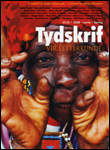La femme et sa lutte de libération dans l’oeuvre d’Henri Lopes
DOI :
https://doi.org/10.4314/tvl.v45i2.29836Mots-clés :
African women, mission, struggle for emancipationRésumé
Born in Kinshasa, Congo, on 12 September 1937, but a national of Congo (Brazzaville), Henri Lopes is one of those African writers who, were not only educated but also lived in Europe where a certain portion of their literary work was produced. Being a politician and writer, one can easily glean, through Lopes’ works, a complete picture of despotic postcolonial mismanagement of political affairs coupled with a dire dearth of humanism. Literary works such as Tribaliques (Tribaliks, 1971), La nouvelle Romance (The New Romance, 1976), Sans tam-tam (Without Drum, 1977), Le Pleurer-Rire (The Crying-Laughter, 1982) and Sur l’autre rive (On the Other Shore, 1992) depict a particular worldview as well as an understanding of the overarching reality of a young Africa that had just attained political independence. However, while Lopes’ works decry the shortcomings of Africa’s postcolonial ruling class, it is important to note that the author appears to pay equal attention to questions relating to the perception and critical analysis of the status of women in Africa. Notwithstanding his male gender status, in his rather original approach, Lopes lends women a revolutionary voice with which they address and search for solutions to their problems themselves.
Téléchargements
Références
...
Téléchargements
Publiée
Numéro
Rubrique
Licence
(c) Copyright Tydskrif vir Letterkunde 2008

Ce travail est disponible sous licence Creative Commons Attribution - Partage dans les Mêmes Conditions 4.0 International.


 https://orcid.org/0000-0001-6465-6584
https://orcid.org/0000-0001-6465-6584


.png)